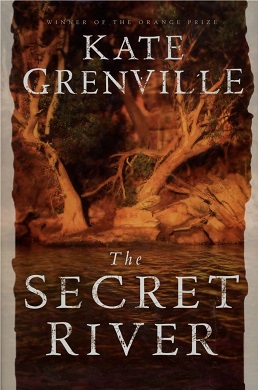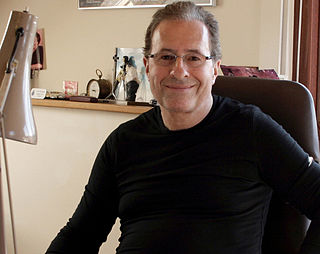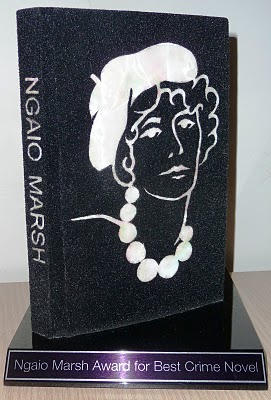Related Research Articles

Crime fiction, detective story, murder mystery, mystery novel, and police novel are terms used to describe narratives that centre on criminal acts and especially on the investigation, either by an amateur or a professional detective, of a crime, often a murder. It is usually distinguished from mainstream fiction and other genres such as historical fiction or science fiction, but the boundaries are indistinct. Crime fiction has several subgenres, including detective fiction, courtroom drama, hard-boiled fiction, and legal thrillers. Most crime drama focuses on crime investigation and does not feature the courtroom. Suspense and mystery are key elements that are nearly ubiquitous to the genre.

Mystery is a fiction genre where the nature of an event, usually a murder or other crime, remains mysterious until the end of the story. Often within a closed circle of suspects, each suspect is usually provided with a credible motive and a reasonable opportunity for committing the crime. The central character is often a detective, who eventually solves the mystery by logical deduction from facts presented to the reader. Some mystery books are non-fiction. Mystery fiction can be detective stories in which the emphasis is on the puzzle or suspense element and its logical solution such as a whodunit. Mystery fiction can be contrasted with hardboiled detective stories, which focus on action and gritty realism.

Genre fiction, also known as formula fiction or popular fiction, is a term used in the book-trade for fictional works written with the intent of fitting into a specific literary genre in order to appeal to readers and fans already familiar with that genre.

Australian literature is the written or literary work produced in the area or by the people of the Commonwealth of Australia and its preceding colonies. During its early Western history, Australia was a collection of British colonies; as such, its recognised literary tradition begins with and is linked to the broader tradition of English literature. However, the narrative art of Australian writers has, since 1788, introduced the character of a new continent into literature—exploring such themes as Aboriginality, mateship, egalitarianism, democracy, national identity, migration, Australia's unique location and geography, the complexities of urban living, and "the beauty and the terror" of life in the Australian bush.

Kim Scott is an Australian novelist of Aboriginal Australian ancestry. He is a descendant of the Noongar people of Western Australia.

The Secret River is a 2005 historical novel by Kate Grenville about an early 19th-century Englishman transported to Australia for theft. The story explores what might have happened when Europeans colonised land already inhabited by Aboriginal people. The book has been compared to Thomas Keneally's The Chant of Jimmie Blacksmith and to Peter Carey's True History of the Kelly Gang for its style and historical theme.
Alexis Wright is a Waanyi writer best known for winning the Miles Franklin Award for her 2006 novel Carpentaria and the 2018 Stella Prize for her "collective memoir" of Leigh Bruce "Tracker" Tilmouth.

Kerry Isabelle Greenwood is an Australian author and lawyer. She has written many plays and books, most notably a string of historical detective novels centred on the character of Phryne Fisher, which was adapted as the popular television series Miss Fisher's Murder Mysteries. She writes mysteries, science-fiction, historical fiction, children's stories, and plays. Greenwood earned the Australian women's crime fiction Davitt Award in 2002 for her young adult novel The Three-Pronged Dagger.

Peter J. James is a British writer of crime. He was born in Brighton, the son of Cornelia James, the former glovemaker to Queen Elizabeth II.

Adrian McKinty is a Northern Irish writer of crime and mystery novels and young adult fiction, best known for his 2020 award-winning thriller, The Chain, and the Sean Duffy novels set in Northern Ireland during The Troubles. He is a winner of the Edgar Award, the Theakston Old Peculier Crime Novel of the Year Award, the Macavity Award, the Ned Kelly Award, the Barry Award, the Audie Award, the Anthony Award and the International Thriller Writers Award. He has been shortlisted for the CWA Ian Fleming Steel Dagger and the Grand Prix de Littérature Policière.
Colin McLaren is an Australian documentary filmmaker, crime writer, and former police detective sergeant. His 2013 book JFK: The Smoking Gun, based on his theory about the assassination of U.S. president John F. Kennedy, was made into an award-winning documentary film. A feature-length telemovie Underbelly Files: Infiltration about his life, starring Sullivan Stapleton in the title role, aired in 2011.
Mike Ripley was born in 1952 and is the British author of the award-winning ‘Angel’ series of comedy thrillers as well as a critic and archaeologist.

Bruce Pascoe is an Australian writer of literary fiction, non-fiction, poetry, essays and children's literature. As well as his own name, Pascoe has written under the pen names Murray Gray and Leopold Glass. Pascoe identifies as Aboriginal. Since August 2020, he has been Enterprise Professor in Indigenous Agriculture at the University of Melbourne.

The Ngaio Marsh Awards, popularly called the Ngaios, are literary awards presented annually in New Zealand to recognise excellence in crime fiction, mystery, and thriller writing. The Awards were established by journalist and legal editor Craig Sisterson in 2010, and are named after Dame Ngaio Marsh, one of the four Queens of Crime of the Golden Age of Detective Fiction. The Award is presented at the WORD Christchurch Writers & Readers Festival in Christchurch, the hometown of Dame Ngaio.
Adrian Hyland is an Australian writer of non-fiction and crime fiction.

Lycée-Collège d'État Émile Letournel is a combined junior high school and senior high school/sixth-form college on the island of Saint-Pierre, in Saint Pierre and Miquelon. It was named after a famous French orthopaedic surgeon, Émile Letournel (1927-1994), native of Saint-Pierre.
Jane Harper is a British–Australian author known for her crime novels The Dry, Force of Nature and The Lost Man, all set in rural Australia.
Natasha Wanganeen is an Aboriginal Australian actress. She is known for her starring role in the 2002 feature film Rabbit-Proof Fence, aged 15, and numerous television roles. Her debut film as co-writer and co-producer is the 2022 short film, an Indigenous sci-fi drama entitled Bunker: The Last Fleet, about an alien invasion of Australia, in which she also takes the lead role.
The First Nations Australia Writers Network (FNAWN) is the peak advocacy body for Aboriginal and/or Torres Strait Islander writers, storytellers and poets in Australia.
References
- ↑ "About". Philip McLaren. Retrieved 21 February 2021.
- 1 2 3 4 "Philip McLaren". Melbourne Writers Festival. 2009. Archived from the original on 10 March 2011. Retrieved 6 February 2014.
- 1 2 3 "Philip McLaren". AustLit. 28 September 2017. Retrieved 21 February 2021.
- ↑ "Author profile: Philip McLaren". Macquarie PEN Anthology of Australian Literature Project. Retrieved 21 February 2021.
- ↑ Reed-Gilbert, Kerry (13 July 2018). "A short history of the First Nations Australia Writers Network". Overland literary journal. Retrieved 21 February 2021.
- ↑ Ramsland, John; Marie Ramsland (2012). "Arthur Upfield and Philip McLaren: Pioneering Partners in Australian Ethnographic Crime Fiction". In Jean Anderson; Carolina Miranda; Barbara Pezzotti (eds.). The Foreign in International Crime Fiction: Transcultural Representations. Bloomsbury. pp. 99ff. ISBN 9781441177032.
- 1 2 Heiss, Anita (2003). To Talk Straight: Publishing Indigenous Literature. Aboriginal Studies Press. p. 148. ISBN 9780855754440.
- ↑ The West Australian (25 March 2010). "Utopia wins French prize". The West Australian . Retrieved 21 February 2021.
- ↑ "Le prix "Récit de l'Ailleurs" fête ses 10 ans – Saint-Pierre et Miquelon la 1ère". Saint-Pierre et Miquelon la 1ère (in French). 22 January 2019. Retrieved 21 February 2021.
- ↑ Tony Smith (2002), "Keeper of Dreams: review — Review of Scream Black Murder Philip McLaren 1995 novel ; There'll be New Dreams Philip McLaren 2001 novel", Australian Book Review, issue 238